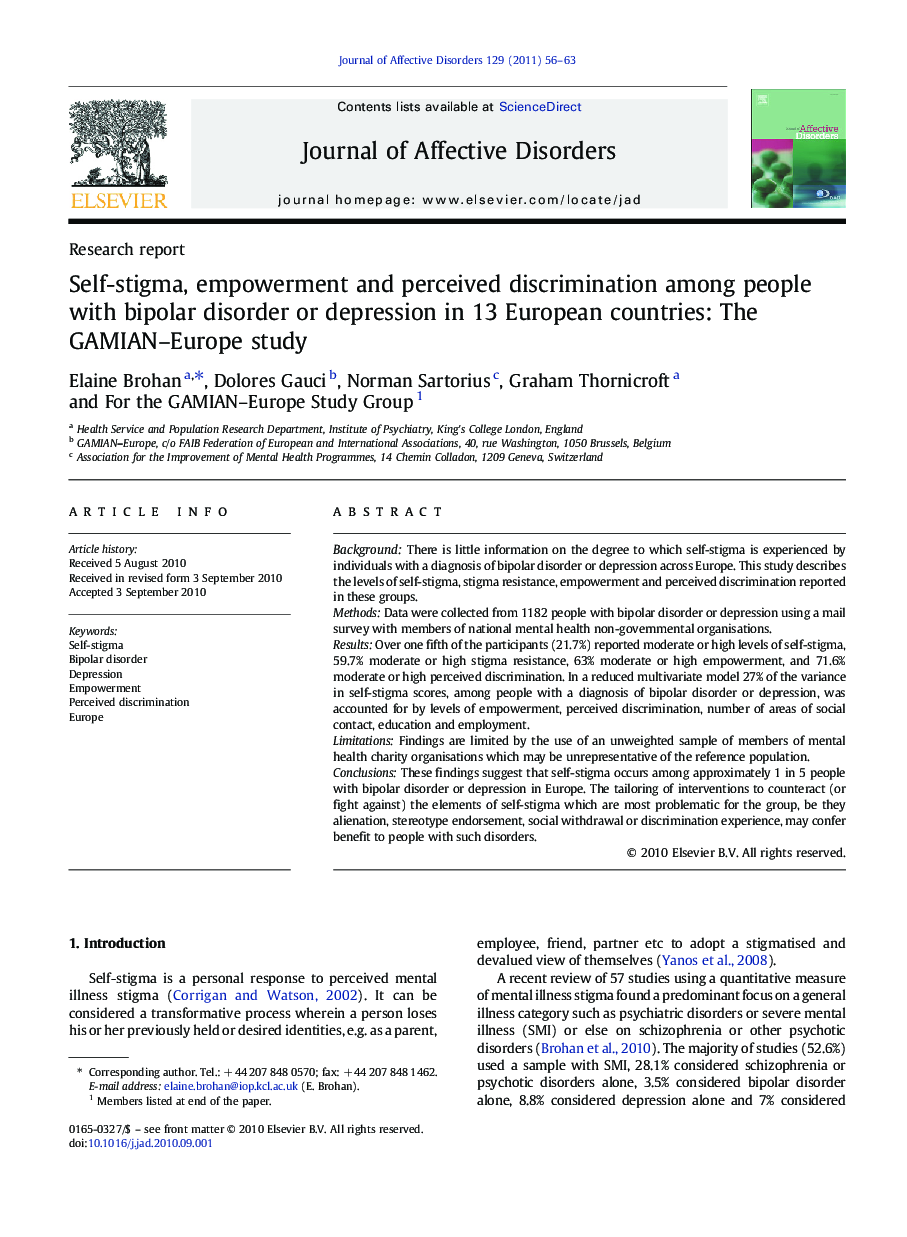| Article ID | Journal | Published Year | Pages | File Type |
|---|---|---|---|---|
| 4186504 | Journal of Affective Disorders | 2011 | 8 Pages |
BackgroundThere is little information on the degree to which self-stigma is experienced by individuals with a diagnosis of bipolar disorder or depression across Europe. This study describes the levels of self-stigma, stigma resistance, empowerment and perceived discrimination reported in these groups.MethodsData were collected from 1182 people with bipolar disorder or depression using a mail survey with members of national mental health non-governmental organisations.ResultsOver one fifth of the participants (21.7%) reported moderate or high levels of self-stigma, 59.7% moderate or high stigma resistance, 63% moderate or high empowerment, and 71.6% moderate or high perceived discrimination. In a reduced multivariate model 27% of the variance in self-stigma scores, among people with a diagnosis of bipolar disorder or depression, was accounted for by levels of empowerment, perceived discrimination, number of areas of social contact, education and employment.LimitationsFindings are limited by the use of an unweighted sample of members of mental health charity organisations which may be unrepresentative of the reference population.ConclusionsThese findings suggest that self-stigma occurs among approximately 1 in 5 people with bipolar disorder or depression in Europe. The tailoring of interventions to counteract (or fight against) the elements of self-stigma which are most problematic for the group, be they alienation, stereotype endorsement, social withdrawal or discrimination experience, may confer benefit to people with such disorders.
